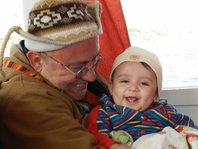
As a young girl, growing up I was always my mother’s helper. Being the eldest sibling in a single-parent household, the message I received was unspoken: you are the eldest, I need you, and your brothers and sisters are your responsibility, too. While I accepted this role, there were many times when I did not completely want this expectation. Upon reflection, though, I realize our lifestyle provided me with limited opportunities for childhood mistakes. Even when I reached high school and college, I still felt responsible for my siblings.
It was during my undergraduate years, though that my beloved grandmother, the woman who primarily raised me, became quite ill. This beautiful black woman, who had risen from being an orphan, had always impressed upon me that I could do anything I put my mind to. While I returned home as often as I could to be by her side, my GPA and disqualification from XXXX University did not dampen my spirit nor dissolve my dreams. After completing my undergraduate education with San Francisco State University, I had a great deal of pride in my accomplishments, and yet was left wanting to go further. I quickly learned to keep my ambitions to myself as many commented, “you just got out [of school], aren’t you done with this school thing?”
My performance at XXXX University was directly in line with my ability and was instrumental in proving to myself that I really was capable of anything I set my mind to. Upon graduating, I was anxious to begin my work, and actively sought out and procured work in the San Francisco community serving the mental health needs of inner-city children and adolescents.
It was in this capacity that I found that schools were designed as a holding tank, to get kids out of the mainstream so it could keep going. Sadly, children were frequently left to their own devices to deal with the sets of problems that inner city life brings. There were simply too few counselors, psychologists and social workers assigned to assist the children. While teachers and administration were focused on the task of passing standardized tests, nobody was addressing children’s deeper psychological and emotional needs.
To reach more children, I felt the need for a new approach, a new method. Turning to yoga, I became certified in yoga instruction, learning firsthand the benefits of Mindfulness Based Stress yoga/meditation. I felt that I had come to a viable solution for reaching children and adolescents’ unique needs. To prove this, I offered a cost free Mindfulness Based meditation/yoga series to a homeless shelter for adolescents and later got involved in setting up a yoga program within the XXXX Department of Juvenile Justice using the 30-minute psycho-education school course period.
Reaching the children proved to be an exercise in inter-agency participation and cooperation, particularly through educating teachers, social workers and support staff in order to support the yoga programming; for my part, I was warned frequently to never call is “meditation”. With eyes closed and deep breaths, students learned a new method to reduce anxiety, conflict, and attention disorders. We got violent kids into yoga and kids who used drugs into meditation and I began to dream of how Mindfulness Based Stress Reduction (MBSR) skills could benefit at-risk youth, and the dream grew wings. MBSR skills actually supported a more positive learning environment, where inner city students were more primed for paying attention and being in the moment in a classroom setting. I remember clearly, my defining moment when I recognized that mindfulness meditation and complementary stress reduction skills might have healing benefits and support a youth’s ability to handle stress and alleviate depression, anxiety, post-traumatic stress, the foundation for my Ph.D. research.

